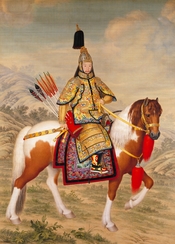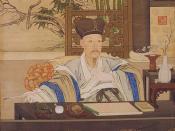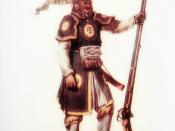A Choice between Loyalty and Filial Piety
A Choice between Loyalty and Filial Piety
Loyalty and filial piety, as the two major virtues in Confucian orthodoxy, have been emphasized for centuries in Chinese history. Loyalty "bonded officials to rulers," and filial piety "bonded children to parents" (Spence 102). When talking about loyalty and filial piety, modern people tend to have the misconception that the two virtues are applied more to the vast subjects ruled by the Chinese emperor, rather than to the emperor himself. Especially when thinking about the application of loyalty, it seems the emperor himself has no master to serve or betray. Yet in Elliott's book, the author successfully portrays a humanlike emperor, Qianlong, a person who was constrained by these two virtues he pursued, and sometimes he needed to make a hard choice between them.
One of the scenes that surprised me the most is Qianlong's extreme outrage towards his respected teacher, Zhang Tingyu. Eighty-eight-year-old Zhang sent his son to give thanks for Qianlong's benevolence after his personal request had been approved, but Qianlong lost his temper due to the fact that Zhang did not come himself. After Zhang came on the third day to apologize, Qianlong was even angrier and "called [Zhang] among others a 'useless antique'" (32). The relationship between Qianlong and Zhang was not simply emperor and minister or student and teacher, but both. By the time the Qing dynasty was founded, "the works of Confucius were regardedâ¦as the key repositories of ethical wisdom" (Spence 102). Ru doctrines, also known as "monolithic Confucianism" (76), require students to show great respect to their teachers. Sayings like "one day as your teacher equals to one lifetime as your father" also show the essential position teachers acquire in Chinese ideology. Even as a prince, young Qianlong...


